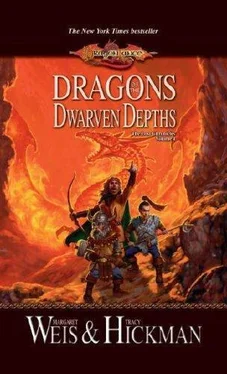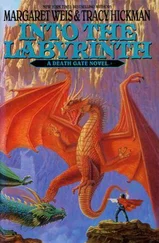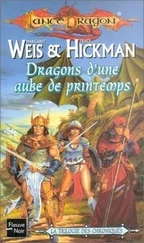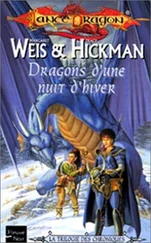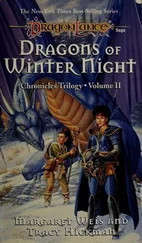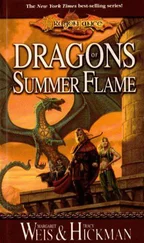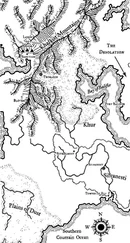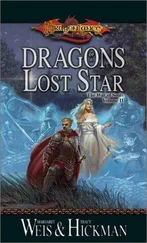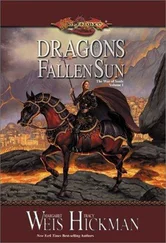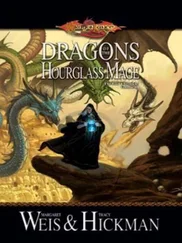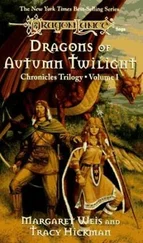Margaret Weis - Dragons of The Dwarven Depths
Здесь есть возможность читать онлайн «Margaret Weis - Dragons of The Dwarven Depths» весь текст электронной книги совершенно бесплатно (целиком полную версию без сокращений). В некоторых случаях можно слушать аудио, скачать через торрент в формате fb2 и присутствует краткое содержание. ISBN: , Жанр: Фэнтези, на английском языке. Описание произведения, (предисловие) а так же отзывы посетителей доступны на портале библиотеки ЛибКат.
- Название:Dragons of The Dwarven Depths
- Автор:
- Жанр:
- Год:неизвестен
- ISBN:0-7869-4099-9
- Рейтинг книги:5 / 5. Голосов: 1
-
Избранное:Добавить в избранное
- Отзывы:
-
Ваша оценка:
- 100
- 1
- 2
- 3
- 4
- 5
Dragons of The Dwarven Depths: краткое содержание, описание и аннотация
Предлагаем к чтению аннотацию, описание, краткое содержание или предисловие (зависит от того, что написал сам автор книги «Dragons of The Dwarven Depths»). Если вы не нашли необходимую информацию о книге — напишите в комментариях, мы постараемся отыскать её.
Dragons of The Dwarven Depths — читать онлайн бесплатно полную книгу (весь текст) целиком
Ниже представлен текст книги, разбитый по страницам. Система сохранения места последней прочитанной страницы, позволяет с удобством читать онлайн бесплатно книгу «Dragons of The Dwarven Depths», без необходимости каждый раз заново искать на чём Вы остановились. Поставьте закладку, и сможете в любой момент перейти на страницу, на которой закончили чтение.
Интервал:
Закладка:
When the gods left the world, the Daewar were crushed and bewildered. Some of their people, true clerics, vanished at this time. Those who remained no longer had any power to heal the plagues that swept through the realm or cast nurturing spells on the crops. The other dwarves began to blame their misery on the Daewar and attacked their temples. Fearing their beautiful temples would be destroyed, the Daewar desperately maintained that Reorx and the other gods were still around; they were just keeping to themselves.
The Daewar priests went about their daily routines, keeping the fires burning in the temples of Reorx, begging for him to hear their prayers and in some instances, creating their own “miracles” to try to prove he had answered. The fierce Daewar soldiers—as fanatical in battle as their clerics were in their beliefs—saw to it that other clans kept out of their kingdom.
As time passed, all but the most fanatical ceased to believe in the gods. Some turned to cults that worshipped everything from a sacred albino rat to an unusual rock formation. Many Daewar went in for soldiering, and the Daewar had the best-trained, fiercest, and most dedicated fighting force beneath the mountain.
Though superb warriors, the Daewar were not particularly intelligent or creative. “Their beards grew into their brains,” as the saying went.
The Daergar were an offshoot of the Theiwar clan and were still considered “dark” dwarves by their cousins. The Daergar were accused of having conspired against the Hylar during the Dwarfgate Wars and were banished by King Duncan to the deepest parts of the mountain. This was not a great hardship on the Daergar, for they had long been miners by trade, skilled at finding and digging out the valuable ore, be it iron, gold, or silver.
The loss of the mining revenues hit the Daergar hard, and the Daergar had sunk into squalor and degradation. Thugs and gangs ruled the streets of their realm, as the poverty-stricken dwarves scrounged a living by any means they could, most often dishonest.
The Daergar blamed the Hylar for their trouble, believing the closing of the mines was a plot to destroy them. The Hylar Thane, Hornfel, feared the Daergar and Theiwar were planning to join together with the intent of overthrowing the Council and seizing control of Thorbardin. Hornfel was doing his best to try to be conciliatory to both, with the unfortunate result that he had made himself appear weak.
As it turned out, Hornfel was already too late. The Theiwar and the Daergar weren’t planning to ally. They had already done so, and they’d found powerful new friends to assist them in their cause.
The Aghar, known as gully dwarves, also held a seat on the Council, to the general mystification of the rest of Krynn. Universally reviled, woefully ignorant, and notorious cowards, gully dwarves were not even true dwarves—at least so the dwarves had always claimed. Gully dwarves were said to have gnome blood in them. (Gnomes, of course, dispute this.) As to the reason why the Aghar had been given a seat on the Council, this dates back to the very early days when Thorbardin was in the process of being built.
At that time, the Theiwar were the leading clan of mountain dwarves. They could see, however, that the Hylar were gaining in power and the Theiwar wanted to insure they would maintain a majority on the Council. Having long terrorized and intimidated the gully dwarves, the Theiwar believed they could continue to coerce them and force them to support any measure they proposed. The Theiwar insisted that the Aghar be given a seat and full voting privileges on the Council.
The Hylar saw through the Theiwar’s scheme and tried to prevent it, but the Theiwar cleverly put it out that if the Aghar were banned from the Council, other clans would be next to go. This enraged the hot-headed Daergar and frightened the insecure Klar. The Hylar had no choice but to give in and thus, though the gully dwarves had no city beneath the mountain, but infested all parts of it like the rats that were the staple of their diet, they were awarded a seat on the Council. Unfortunately for the Theiwar, the gully dwarves ended up supporting the Hylar cause more often than not, simply because the Hylar felt sorry for them and were good to them (at least by gully dwarf standards).
The eighth seat was held by the Kingdom of the Dead. The dwarves revered their ancestors, and although this seat was always vacant, the dwarves felt strongly that their dead were an integral part of dwarven life and should not be forgotten.
The ninth seat was for the High King, one of their own as chosen by the Council. This seat was also vacant and had been so for three hundred years. According to Arman Kharas, there could be no High King unless the Hammer of Kharas was found. This, perhaps, was just an excuse. There had been High Kings in times before the Hammer. Given the current state of unrest, no clan was currently strong enough to claim the kingship. One Thane was positioning himself to remedy this situation.
Realgar of the Theiwar was an extremely dangerous dwarf, far more dangerous than anyone suspected. This had partly to do with his appearance, for he was scrawny and under-sized. His family had been among the poorest of the poor, to the point where they envied gully dwarves. Hunger had stunted his growth, but it had also sharpened his mind.
He had escaped poverty by selling himself to a Theiwar warlock, performing various degrading acts for the warlock, including robbery and murder. In between beatings, Realgar eagerly picked up what scraps of spell-casting knowledge the warlock let fall. Clever and cunning, Realgar soon became more skilled in dark magic than his master. He took his revenge upon the warlock, moved into his late master’s dwelling, and worked hard to become the most feared and consequently the most powerful dwarf in the Theiwar realm. He declared himself Thane, but he was not content with that. Realgar was determined to be crowned High King. Once more, the Theiwar would rule beneath the mountain.
He had no way to accomplish this lofty goal, however. The Theiwar were not skilled warriors. They knew nothing of discipline and could never be made to band together in a cohesive fighting unit. Nor could the self-serving Theiwar fathom the concept of sacrificing one’s life for a cause. The Theiwar were further handicapped by their inability to tolerate light. Shine a light in their eyes, and they were essentially blind.
The Theiwar were good at stabbing people in the back, using their dark magic against enemies, kidnapping, and thieving. While such skills were useful in helping the Theiwar survive and maintain control over their own realm, they would never defeat the powerful Hylar or the fierce Daewar. It seemed that the Theiwar must live beneath the boot heel of the detested Hornfel forever.
Realgar brooded over the ruin of his ambition for years, until at last his whining reached the ears of one who was seeking out dark and discontented souls. Takhisis, Queen of Darkness, came to Realgar and he prostrated himself before her. Takhisis offered to help Realgar achieve his goal in return for a few favors. The favors were not difficult to perform and actually benefited the Theiwar. Realgar had no problems keeping his end of the bargain, and thus far Takhisis had kept hers.
Realgar had approached the Thane of the Daergar, a dwarf known as Rance, and made him a proposition. Realgar had found a buyer for the iron ore in the closed Daergar mines. He wanted a few of mines, those that were hidden deep within the labyrinthine caverns of the Daergar realm, to reopen. The miners would go back to work, but they would do so in secret. In return for this and for a promised share in the power when Realgar should become High King, Rance promised to build a secret tunnel through the mountains leading to Pax Tharkas, currently under the rulership of the Dragon Highlord, Verminaard. All this had to be done without the knowledge of any of the other Thanes.
Читать дальшеИнтервал:
Закладка:
Похожие книги на «Dragons of The Dwarven Depths»
Представляем Вашему вниманию похожие книги на «Dragons of The Dwarven Depths» списком для выбора. Мы отобрали схожую по названию и смыслу литературу в надежде предоставить читателям больше вариантов отыскать новые, интересные, ещё непрочитанные произведения.
Обсуждение, отзывы о книге «Dragons of The Dwarven Depths» и просто собственные мнения читателей. Оставьте ваши комментарии, напишите, что Вы думаете о произведении, его смысле или главных героях. Укажите что конкретно понравилось, а что нет, и почему Вы так считаете.
